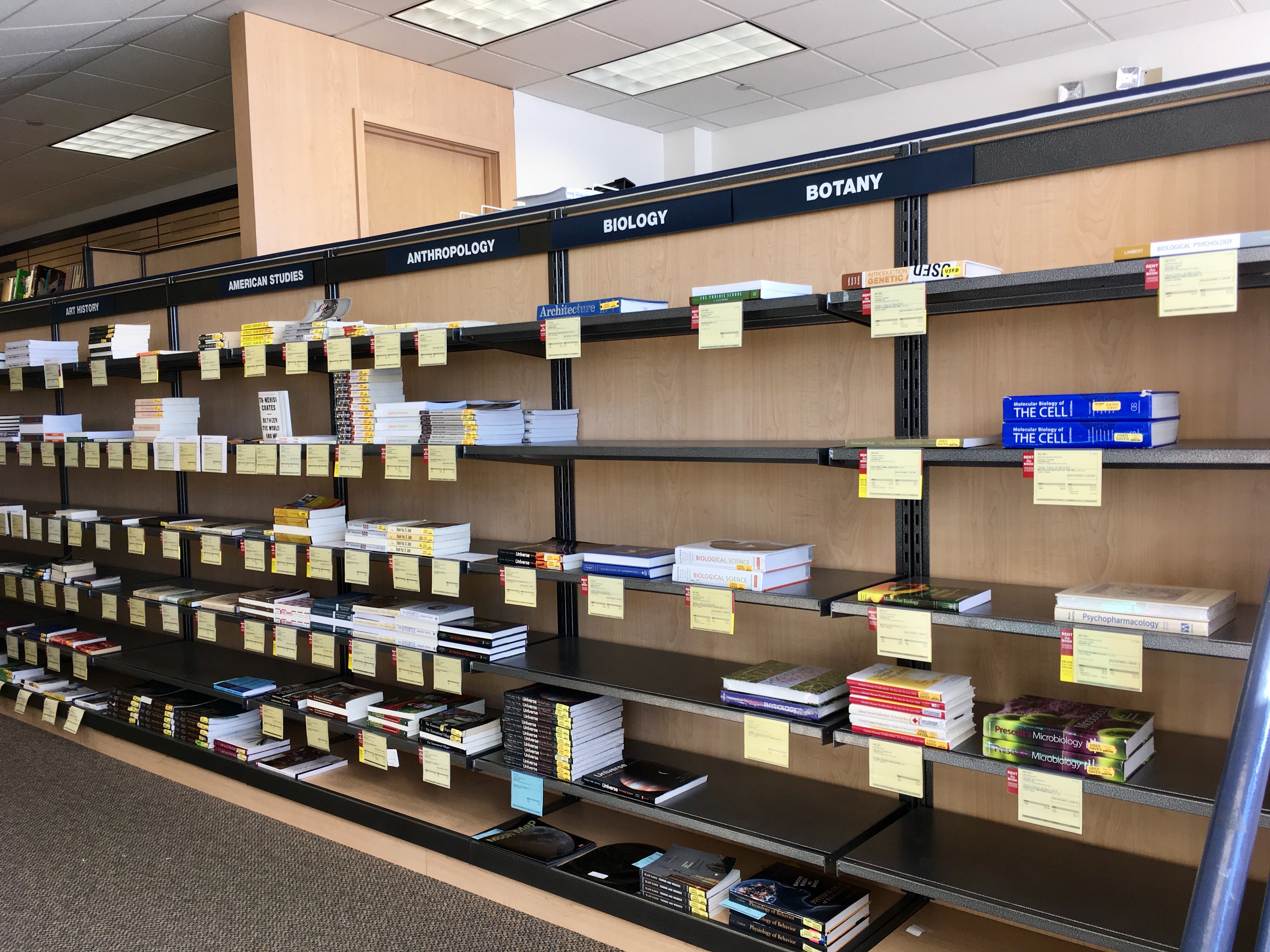
I was asked to purchase six books for a single class my first semester at Connecticut College. Being overwhelmed by the sudden onslaught of assignments in my first week of classes, I decided to purchase the books for that class one-by-one. A couple of weeks later, I walked into the bookstore and discovered that the lovely piles of books had transformed into empty shelves featuring a couple of incredibly tattered, used copies and many order forms. I’m always a little averse to used books because I want my books to look nice; I don’t like having books that have been marked by other people or treated roughly. I chose to buy new copies of most of my books for that class online, which only cost a few extra dollars, something I could afford.
From that experience, I learned that the most important part of buying books is to plan ahead: when college students all over the United States buy the same book at the same time, good, inexpensive copies become scarce both online and in the bookstore. Admittedly, it was difficult for me to make a plan in my first semester. I didn’t get to register for my classes until the day before they started, but since then, planning for how I’m going to buy my books starts from the moment I pick classes during preregistration advising.
Buying books is a complex balancing act, and it’s something I’ve been thinking about since first-year Orientation when some upperclass students told me to search for the best deals online. I don’t think that’s always the best answer to getting your books, so I made a list of strategies I use:
-
Get your books early.
-
Talk with your professor. Textbook requirements differ with each course and professor. Ask whether you will need to bring your book to every class. You can then decide to buy, rent, or borrow the book.
-
Rent books via the internet or bookstore. I like keeping my books, so I usually rent only when I see a good deal on a book that I’m not interested in keeping after my class is over.
-
Search for good deals. The bookstore here price matches other stores and websites.
-
Look before you buy. While you can get some good deals online, especially on marketplace and warehouse sites, the books are usually in “acceptable condition,” which means they probably don’t look great. For me, the bookstore is a great place to buy or rent books because I can look at them before I purchase.
-
Check the shipping date. Buying your books online means you might have to wait a week or more while they ship. If you buy at the bookstore, you don’t have to wait.
-
Visit Shain Library. Many professors put books for class on reserve at the library. You can borrow those books from the circulation desk for two hours as often as you need them.
-
Check the ebook catalogue. Books for class are occasionally available in Shain Library’s ebook catalogue; you can read them anytime for free online.
-
How old is your textbook? Most texts published before 1923 are in the public domain: you can legally download and even print them from the internet for free.
-
Stop by the lending library. The Office of Sustainability runs a free lending library every semester that loans a limited number of donated textbooks to students.
-
Sell back your books. If you buy your books, you can sell them to the bookstore or online as long as the books are used in future classes.
Happy book collecting!